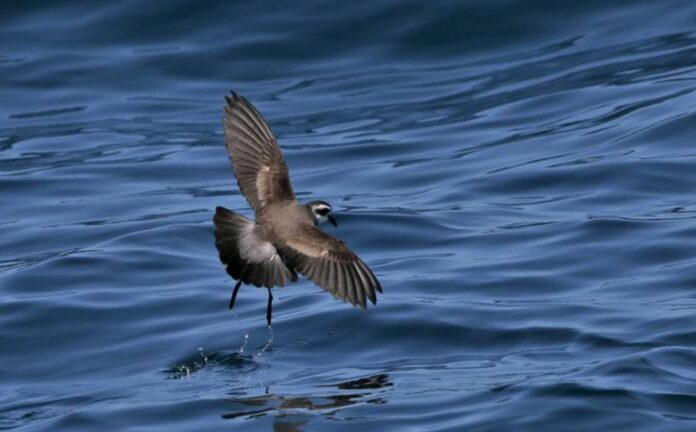The regions facing the highest risk of plastic exposure include the Mediterranean, the Black Sea, the Northwest and Northeast Pacific, the South Atlantic, and the Southwest Indian Ocean.
A groundbreaking study, recently published in Nature Communications, has brought together over 200 researchers from around the world to address a pressing concern: the alarming pollution of our oceans by plastic.
Dr. Maria Dias, a dedicated scientist from the Centre for Ecology, Evolution, and Environmental Changes (cE3c) at the Faculty of Sciences of the University of Lisbon (Ciências ULisboa), spearheaded this important research, which has identified the Mediterranean as the region most at risk on a global scale.
Additionally, the Exclusive Economic Zone of Portugal, particularly around Azores and Madeira, has been identified as a region of moderate risk for the bird species inhabiting and feeding in that area.
Seabirds, a highly endangered group, are particularly vulnerable, with approximately one-third of their species classified as “vulnerable,” “endangered,” or “critically endangered” on the International Union for Conservation of Nature’s red list.
To obtain these findings, the research team meticulously analyzed data from 77 seabird species, comprising over 7,000 individuals, and relied on 1.7 million recorded positions tracked through remote devices. They also incorporated global maps illustrating the concentration of plastic waste. By combining these data sets, the researchers were able to pinpoint areas where birds face the highest exposure to plastic waste, as well as identify the species and populations most affected.
Dr. Maria Dias explains, “The data allows us to conclude that the risk is not uniformly distributed, as a result of the accumulation of plastic in areas where ocean current and tides favor it.”
Seabird distribution throughout their annual cycle is also uneven and highly variable, as many of these species are migratory, capable of traversing thousands of kilometers over the open sea. Dr. Maria Dias emphasizes that when high concentrations of birds and plastic overlap, the risk intensifies significantly.
The study reveals that the Mediterranean, the Black Sea, the Northwest and Northeast Pacific, the South Atlantic, and the Southwest Indian Ocean are among the most perilous areas for seabirds.
Moreover, the findings indicate that species already facing extinction risk due to factors such as the introduction of invasive species on breeding islands, bycatch, or climate change are the ones most exposed to plastic.
Dr. Maria Dias warns, “If the plastic problem continues to worsen, the already fragile state of these species could get even worse.”
“Most species are at a higher risk of finding plastic in waters away from their breeding jurisdiction, and in international waters. This means that international cooperation is essential to solve this problem, imposing dialogue between various actors and increasing the complexity of responses,” emphasizes Dr. Maria Dias.
Regrettably, the issue of marine plastic pollution is also prevalent in Portuguese waters. The country’s Exclusive Economic Zone, particularly the areas surrounding the Azores and Madeira archipelagos, pose significant risks of plastic exposure for seabirds.
Of particular concern is the Balearic Shearwater, a critically endangered species that migrates predominantly to the Portuguese Exclusive Economic Zone, as it also falls victim to bycatch in fishing gear within Portuguese waters.
Additionally, the Desertas Petrel, an endemic species exclusive to Portugal, faces notable threats and has been identified as a priority for further studies.
Source:10.1038/s41467-023-38900-z
Image Credit: Paul Donald
